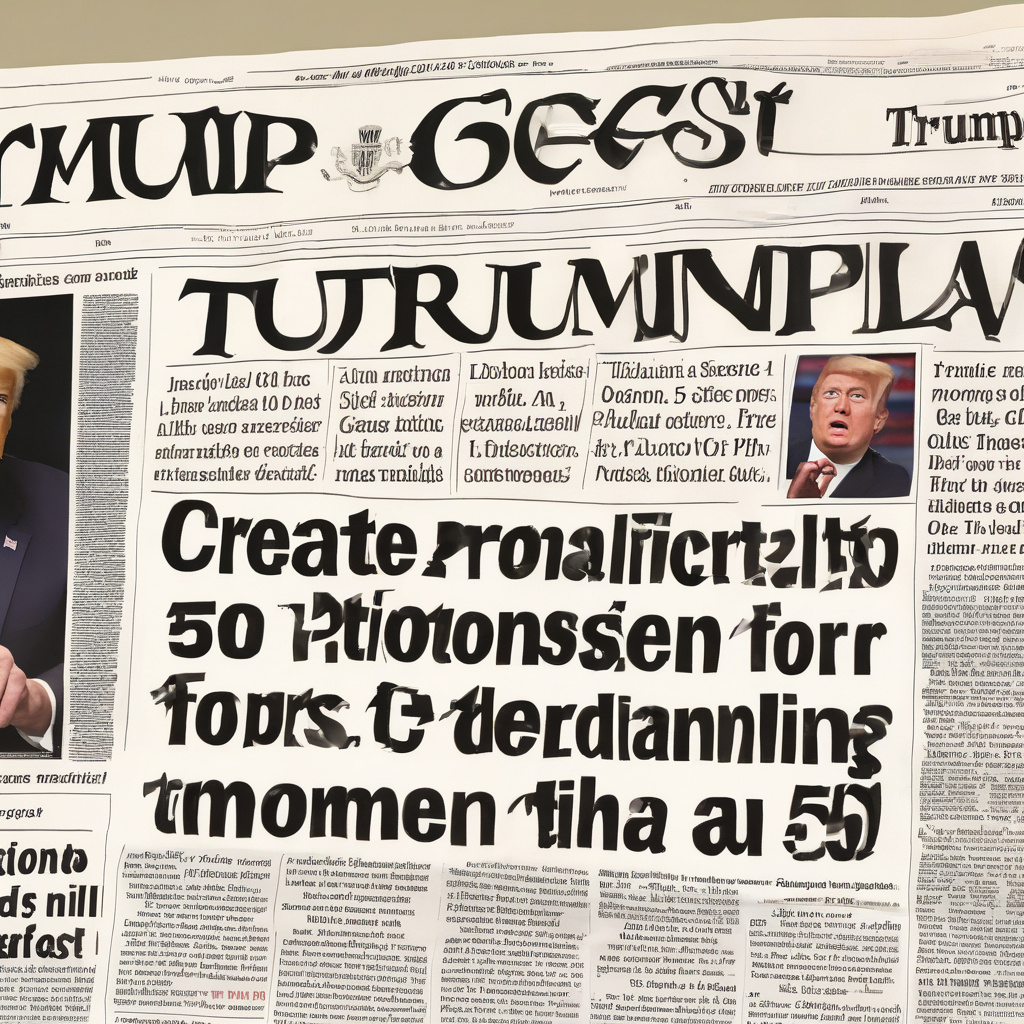Trump Extends Deadline for 50% Tariffs on EU Goods to July 9
In a significant move that could reshape transatlantic trade relations, President Donald Trump announced an extension of the deadline for the imposition of 50% tariffs on European Union goods to July 9. This decision came after what he described as a “very nice” phone call with European Commission President Ursula von der Leyen. The announcement has set the stage for renewed discussions on trade and tariffs, as both sides seek to navigate the complexities of their economic relationship.
The extension of the tariff deadline is a critical development for businesses and consumers alike. Originally set to take effect earlier, the tariffs were part of a broader strategy aimed at addressing perceived trade imbalances between the United States and the EU. By postponing the implementation, the Trump administration signals a willingness to engage in dialogue and negotiation rather than rushing into punitive measures that could have far-reaching consequences.
The potential tariffs, which could cover a wide array of goods, from aircraft to agricultural products, have raised concerns among industry leaders and economists. The fear is that such steep tariffs could escalate into a trade war, ultimately harming both American and European economies. With the extension, there is an opportunity for both parties to reconsider their positions and find common ground.
The phone conversation between President Trump and Ursula von der Leyen likely played a pivotal role in this decision. It illustrates the importance of personal diplomacy in international relations. The ability for leaders to communicate openly can often lead to more favorable outcomes than rigidly adhering to previously established deadlines or policies. In this case, the “very nice” exchange may have helped to alleviate some tensions and foster a climate more conducive to negotiations.
Trade experts have noted that the extension could provide a window for further discussions on key issues such as digital taxation, subsidies in the aerospace sector, and agricultural practices. These topics have been points of contention between the two entities for some time. With both sides under pressure to protect their economic interests, the dialogue initiated by this phone call could pave the way for a more cooperative approach.
One of the most significant sectors that could be affected by the tariff extension is the aerospace industry. Boeing and Airbus, the two largest aircraft manufacturers globally, have been embroiled in a lengthy feud over subsidies. The World Trade Organization (WTO) has ruled that both companies received improper government support, leading to calls for fairer competition. An agreement on this front could lead to a reduction or elimination of tariffs, benefiting both companies and their supply chains.
Additionally, European farmers are closely monitoring the situation, as tariffs on agricultural goods could severely impact their exports to the United States. The EU has a robust agricultural sector that relies on access to American markets. By extending the deadline, there is hope that farmers on both sides of the Atlantic could avoid the uncertainties that tariffs would bring.
While the extension of the deadline is a positive step, it does not eliminate the underlying issues that prompted the consideration of tariffs in the first place. The U.S. is still facing significant trade deficits with the EU, and the administration may feel compelled to take further actions if negotiations do not yield satisfactory results. Therefore, stakeholders must remain vigilant and proactive as the new deadline approaches.
In conclusion, President Trump’s decision to extend the deadline for 50% tariffs on EU goods to July 9 represents an important opportunity for renewed dialogue and negotiation between the United States and the European Union. The personal diplomacy demonstrated through the phone call with Ursula von der Leyen has opened the door for potential agreements that could benefit both economies. As the two sides work towards a resolution, the stakes remain high for businesses and consumers alike, underscoring the critical nature of international trade relations in today’s interconnected world.
#tariffs #trade #EU #Trump #business
